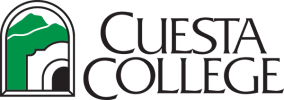
Program Summary
NURSING, REGISTERED - Associate in Science
The Cuesta College Associate Degree Nursing Program (ADN) is approved by the California Board of Registered Nursing (BRN). The purpose of the nursing program is to prepare students for entry level registered nursing positions in a variety of health care settings in California. Graduates of this two-year program are eligible to take the National Council for Licensure Examination (NCLEX), and upon successful completion, become licensed as a Registered Nurse (RN) in the State of California.
The Cuesta College Associate Degree Nursing Program (ADN) is approved by the California Board of Registered Nursing (BRN). The purpose of the nursing program is to prepare students for entry level registered nursing positions in a variety of health care settings in California. Graduates of this two-year program are eligible to take the National Council for Licensure Examination (NCLEX), and upon successful completion, become licensed as a Registered Nurse (RN) in the State of California. Comprehensive information about required preparation and prerequisites for the RN program is available on the Cuesta College Nursing website, at https://www.cuesta.edu/academics/divisions/nah/nursingdept/index.html Students are also strongly encouraged to attend a Pre-Nursing information Workshop (dates posted on website) and to visit an Academic Counselor for detailed program information. The courses listed below are open only to students who have been admitted to Cuesta's A.S., Registered Nursing program through the application process.